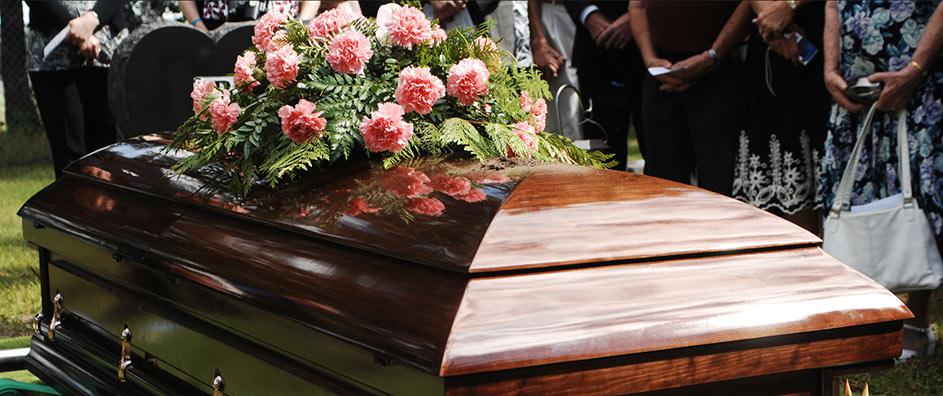When contemplating the profound nature of life and death, one may find that funerals serve as poignant reminders of the transitory human experience. Within the Bahá’í Faith, these moments of reflection unveil a tapestry of spiritual insights and life lessons that resonate deeply with adherents and seekers alike. The contemplation of such events brings forth a transformative shift in perspective, inviting both understanding and enlightenment.
Firstly, a funeral epitomizes the impermanence of earthly existence, a concept that is profoundly acknowledged in Bahá’í teachings. This notion serves as a stark reminder that life is a fleeting gift, prompting individuals to appreciate the present moment. The Bahá’í writings assert that life is only the first step in the soul’s journey through eternity. Acknowledging this, a funeral offers an opportunity to transcend mundane concerns, allowing individuals to reflect on higher purposes and the eternal nature of the soul.
Moreover, the gathering of friends and family at a funeral facilitates a communal experience of grief, reinforcing the interconnectedness of humanity. The Bahá’í perspective posits that the bonds we form in this temporal existence ripple into the spiritual realm. Recognizing the oneness of humanity can foster compassion, empathy, and a collective strength that emerges from shared sorrow. Funerals can become sanctuaries for healing, where love and support offer solace in the face of loss.
Another essential teaching derived from funerals in the Bahá’í context is the emphasis on the principle of detachment. While grief is a natural and often overwhelming response, the teachings advocate for a balanced approach that embraces both mourning and acceptance. Detachment does not signify indifference; rather, it implies understanding that material ties are temporary. By adopting this lens, mourners can navigate the complexities of their emotions while fostering a deeper connection with the spiritual truths that underscore existence.
In addition to promoting detachment, funerals resonate with the call to celebrate the life lived rather than simply mourning the death. The Bahá’í Faith underscores the importance of legacy and the impact one leaves on the world. Rituals and eulogies serve as tributes that honor the deceased’s contributions and virtues. This celebration encourages attendees to contemplate their own lives, pushing them to consider how they wish to be remembered and what seeds of kindness they plant in the lives of others. Engaging with such thoughts can spur a profound re-evaluation of personal priorities and aspirations.
Furthermore, the concept of resurrection, central to many religious beliefs, takes on a distinctive interpretation in the Bahá’í Faith. Rather than a physical return, resurrection is understood as the soul’s continual progression in the spiritual realms. Funerals symbolize a gateway, a transition into a new state of being that invites contemplation on the afterlife and the spiritual evolution that awaits every soul. This belief can imbue attendees with a sense of hope and anticipation regarding the journey beyond this earthly plane.
As emotions oscillate between sorrow and peace, the Bahá’í teachings suggest that individuals reflect upon the inherent purpose of life itself. The purpose, as outlined in Bahá’í scripture, is to develop virtues, engage in service to humanity, and cultivate a relationship with the Divine. Such reflections ignite the curiosity that can fuel transformative actions. Mourners may leave funerals with renewed vigor, compelled to deepen their faith and engage with their communities more profoundly. The experience can be a catalyst for personal growth and societal contributions.
Moreover, there exists an educational dimension to funerals in the Bahá’í context. They provide a profound opportunity to discuss existential questions, sharing insights on topics such as mortality, purpose, and the interconnectedness of existence. These discussions can initiate thought-provoking dialogues that transcend the confines of traditional mourning, fostering a rich intellectual inquiry into life’s complexities. Engaging with these themes can embolden individuals to confront their fears and uncertainties, prompting a courageous investigation into the mysteries of life and death.
Lastly, funerals stand as a testament to the enduring power of faith. For Bahá’ís, these gatherings reaffirm the significance of spiritual teachings in navigating life’s trials. The shared prayers, hymns, and reflections resonate with a collective belief in God’s mercy and the eternal nature of the soul. In such moments, individuals may be inspired to cultivate a deeper connection with their faith, seeking guidance and understanding as they grapple with their grief.
In conclusion, funerals within the framework of Bahá’í teachings serve as profound moments of reflection, community, and spiritual education. They offer deep lessons that challenge individuals to reconsider their perspectives on life and death, urging them to embrace a transformative understanding of existence. Through the lens of love, detachment, and faith, funerals can become profound catalysts for personal growth, urging individuals to lead lives characterized by virtue, service, and a commitment to the betterment of humanity. Engaging with these teachings imbues the experience of loss with meaning, ultimately transforming grief into a pathway of enlightenment, purpose, and resolute hope.
